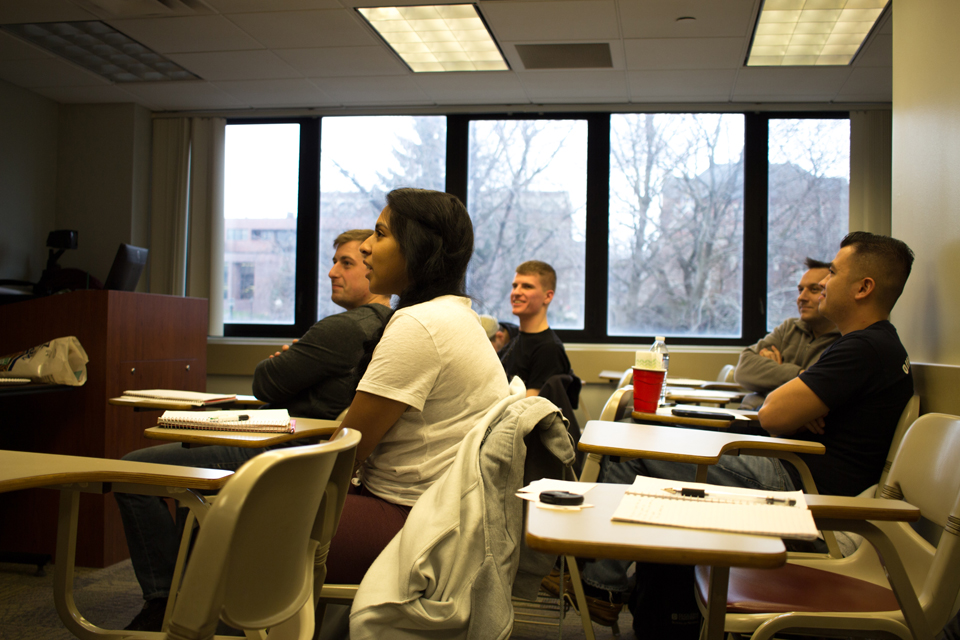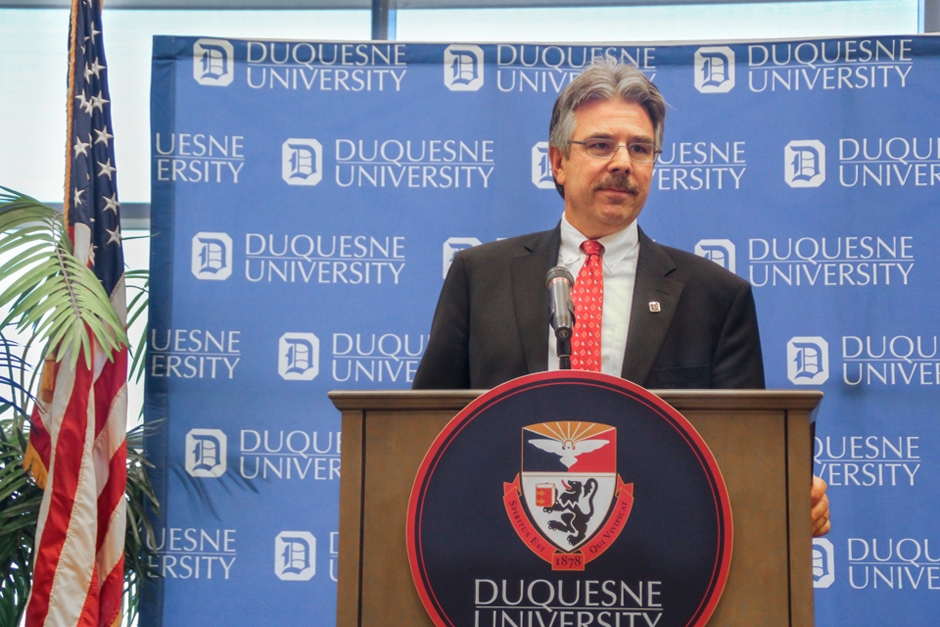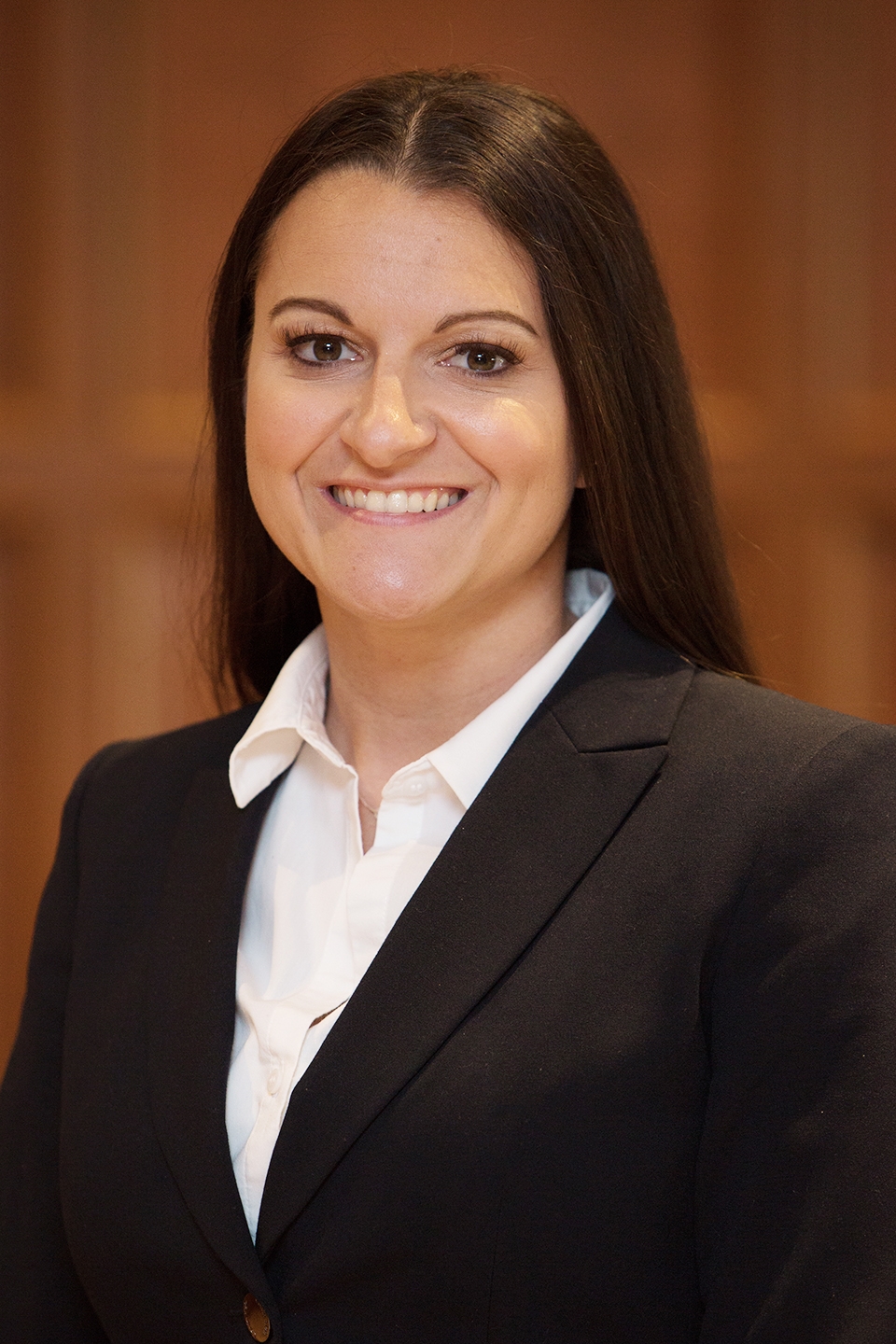

By Seth Culp-Ressler | Features Editor
She is beautiful.
A simple phrase that can evoke any number of emotions, images and thoughts. Simple and succinct, yet still endlessly imprecise. For the small group of student veterans gathered in Fisher Hall this past Monday, interpreting this abstraction was the task at hand.
They were gathered for the inaugural meeting of DU Dog Tags, a brand new creative writing group for Duquesne’s student veterans. It’s the brainchild of doctoral candidate and teaching fellow Ashley Kunsa and visiting assistant professor of English Jeff Martin.
Kunsa kicked off the meeting by explaining one of the core building blocks of creative writing — images. That doesn’t mean just pictures, but the impressions of all five senses connected with a scene, person or object. These are the fundamental ways in which we experience the world, and harnessing them is vital for effective writing.
Then, all of a sudden, Kunsa threw them into it head first with the aforementioned “She is beautiful.” From those three words, the students had mere minutes to construct a description, narrative or scene. The results were diverse, with images of girlfriends, boats, mothers and cars floating around the room.
That very outcome — of thought-provoking, constructive, in-the-moment work — is really the goal of the meetings. In essence it is a full-on class, albeit one free from the pressure of the gradebook and assignments on hard deadlines.
As Kunsa explained, the idea for the program came about last semester after Martin saw the documentary “Project 22,” which deals with the unfortunately high rate of veteran suicide in the United States. Around the same time was the Starbucks “Christmas cup” controversy, a frenzied debate over the omission of any traditional Christmas imagery on the famous chain’s cups.
The juxtaposition between the little-known film and the nationally-covered coffee squabble was not lost on Martin or Kunsa. How could the country, they thought, be obsessed over meaningless problems like coffee cup designs when important issues, as seen in “Project 22,” are all around us?

It spurred a thought — why couldn’t they do something about this themselves? Surely there was a way to apply their English professor skills to help, at the very least, Duquesne’s own community.
“A couple days later, I was in a Starbucks and thought, ‘We need to start a group.’” Kunsa said. “I contacted [Martin], and he was all for it.”
Monday morning was, as much as anything, a simple testing of the waters. Donuts, pretzels and drinks were provided to ease into the meeting. With seven students on show, the room wasn’t packed. Instead, the atmosphere was much more intimate.
Be they representatives of the Army, Navy, Marines or Air Force, a common thread ran throughout. Everyone there was a part of the small but tight-knit veteran community on campus. Because of that, some of the students already knew each other. With the help of some light, unusually enjoyable icebreakers, any strangers were happily chatting in no time.
Also in attendance was Don Accamando, the director of Duquesne’s office of military and veteran students. As he later explained, writing creatively is a skill many veteran students struggle with. If anything, it’s often simply due to the amount of time they’ve gone without it.
“In some cases it has been some time since many veterans have been involved in a writing course,” he said. “Complicating this more is the fact that [veterans] write in a certain, direct style.”
Nearly every student echoed that sentiment, some noting that the last time they took a writing class was a decade ago. Others added that writing assistance could have been enormously useful just this past semester in classes with writing-intensive assignments. Clearly, there was a need and an audience.
For the initial group of students, the reasoning behind the desire to improve their writing skills varied from person to person. A few were hoping to see benefits in their academic major-centric work. Others had pieces of creative writing experience and wanted to push their abilities further. For some it was just a bit of fun.
As promised, anxiety is replaced with an environment of creativity and community. A key point Kunsa and Martin stressed was that creative writing is for everyone; it’s a skill that any person can take advantage of. It’s a means of building confidence, expressing oneself and sharing ideas. And when writing comes from the veteran community, it can also become a learning experience for everyone else.
“[Veterans] have these stories that the rest of us, we don’t know anything about,” Kunsa said. “So I think they have a lot of really valuable stuff to share. Giving voice to that is really important.”
For more details about DU Dog Tags, including meeting times, email vetswriteduquesne@gmail.com



